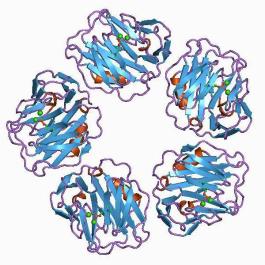
Young adults who have higher levels of inflammation, which is associated with obesity, physical inactivity, chronic illness, stress and smoking, may experience reduced cognitive function in midlife, a new study out of UC San Francisco has found.
Researchers previously linked higher inflammation in older adults to dementia, but this is one of the first studies to connect inflammation in early adulthood with lower cognitive abilities in midlife.
“We know from long-term studies that brain changes leading to Alzheimer’s disease and other dementias may take decades to develop,” said first author Amber Bahorik, PhD, of the UCSF Department of Psychiatry and Behavioral Sciences and the Weill Institute for Neurosciences. “We wanted to see if health and lifestyle habits in early adulthood may play a part in cognitive skills in midlife, which in turn may influence the likelihood of dementia in later life.”
In their study, publishing in Neurology on July 3, researchers found that only 10% of those with low inflammation performed poorly on testing of processing speed and memory, compared to 21% and 19%, respectively, of those with either moderate or higher levels of inflammation.

The protein C-reactive protein (CRP) is used to measure inflammation. Credit: Wikimedia Commons
When researchers adjusted for factors like age, physical activity and total cholesterol, disparities remained in processing speed; and the researchers also found differences in executive functioning, which includes working memory, problem solving and impulse control.
The study followed 2,364 adults in the CARDIA study, which aims to identify the factors in young adulthood that lead to cardiovascular disease two-to-three decades later.
Participants were 18 to 30 years old when they entered the study and were tested four times over an 18-year period for the inflammatory marker C-reactive protein (CRP). They took the cognitive tests five years after their last CRP measurement, by which time most participants were in their forties and fifties.
About half the participants were female; a little under half were Black, and the rest were white. Some 45% had lower stable inflammation, while 16% had moderate or increasing inflammation; 39% had higher levels.
A link between inflammation and health risks
The researchers also linked higher levels of inflammation with physical inactivity, higher BMI and current smoking.
“Inflammation plays a significant role in cognitive aging and may begin in early adulthood,” said senior author Kristine Yaffe, MD, a professor of psychiatry and behavioral sciences, neurology, and epidemiology and biostatistics at UCSF. “There is likely a direct and indirect effect of inflammation on cognition.”
Yaffe is a member of the first team of experts to determine that 30% of dementia risk is preventable. Her recent research has looked at the association in midlife between fragmented sleep and lower cognition and the effects of personalized health and lifestyle changes in preventing memory loss in higher-risk older adults.
“Fortunately, there are ways to reduce inflammation – such as by increasing physical activity and quitting smoking – that might be promising paths for prevention,” Yaffe said.
Co-Authors: Tina Hoang, MSPH, of Northern California Institute for Research and Education; David R. Jacobs, PhD, of University of Minnesota; Deborah Levine, MD, PhD, of University of Michigan, Ann Arbor; Kristine Yaffe, MD, of UCSF.
Funding: Please see the paper.
Disclosures: Yaffe reports serving on the Data Safety Monitoring Board for Eli Lilly and several National Institute on Aging sponsored studies, consultation services for Alpha Cognition, serving on the board of directors for Alector Inc., data and safety and monitoring services for Dominantly Inherited Alzheimer Network Trials Unit, and serving on the Beeson Scientific Advisory Board and the Global Council on Brain Health.
Read the study
- Neurology Journals: Association of Changes in C-Reactive Protein Level Trajectories Through Early Adulthood With Cognitive Function at Midlife
About UCSF Psychiatry and Behavioral Sciences
The UCSF Department of Psychiatry and Behavioral Sciences and the Langley Porter Psychiatric Institute are among the nation's foremost resources in the fields of child, adolescent, adult, and geriatric mental health. Together they constitute one of the largest departments in the UCSF School of Medicine and the UCSF Weill Institute for Neurosciences, with a mission focused on research (basic, translational, clinical), teaching, patient care, and public service.
UCSF Psychiatry and Behavioral Sciences conducts its clinical, educational, and research efforts at a variety of locations in Northern California, including the UCSF Nancy Friend Pritzker Psychiatry Building; UCSF Langley Porter Psychiatric Hospital; UCSF Medical Centers at Parnassus Heights, Mission Bay, and Mount Zion; UCSF Benioff Children’s Hospitals in San Francisco and Oakland; Zuckerberg San Francisco General Hospital and Trauma Center; the San Francisco VA Health Care System; UCSF Fresno; and numerous community-based sites around the San Francisco Bay Area.
About the UCSF Weill Institute for Neurosciences
The UCSF Weill Institute for Neurosciences, established by the extraordinary generosity of Joan and Sanford I. "Sandy" Weill, brings together world-class researchers with top-ranked physicians to solve some of the most complex challenges in the human brain.
The UCSF Weill Institute leverages UCSF’s unrivaled bench-to-bedside excellence in the neurosciences. It unites three UCSF departments—Psychiatry and Behavioral Sciences, Neurology, and Neurological Surgery—that are highly esteemed for both patient care and research, as well as the Neuroscience Graduate Program, a cross-disciplinary alliance of nearly 100 UCSF faculty members from 15 basic-science departments, as well as the UCSF Institute for Neurodegenerative Diseases, a multidisciplinary research center focused on finding effective treatments for Alzheimer’s disease, frontotemporal dementia, Parkinson’s disease, and other neurodegenerative disorders.
About UCSF
The University of California, San Francisco (UCSF) is exclusively focused on the health sciences and is dedicated to promoting health worldwide through advanced biomedical research, graduate-level education in the life sciences and health professions, and excellence in patient care. UCSF Health, which serves as UCSF’s primary academic medical center, includes top-ranked specialty hospitals and other clinical programs, and has affiliations throughout the Bay Area.





